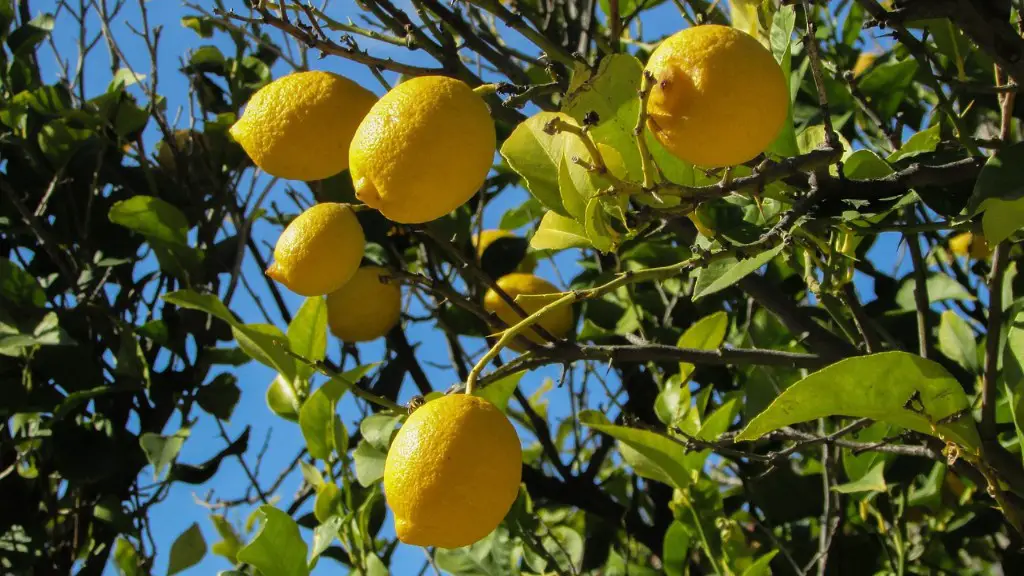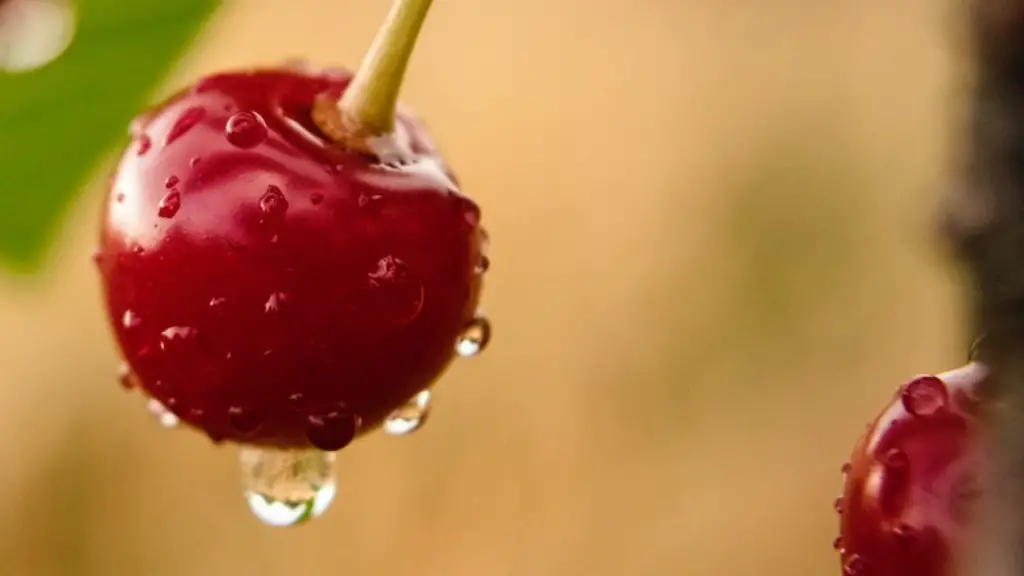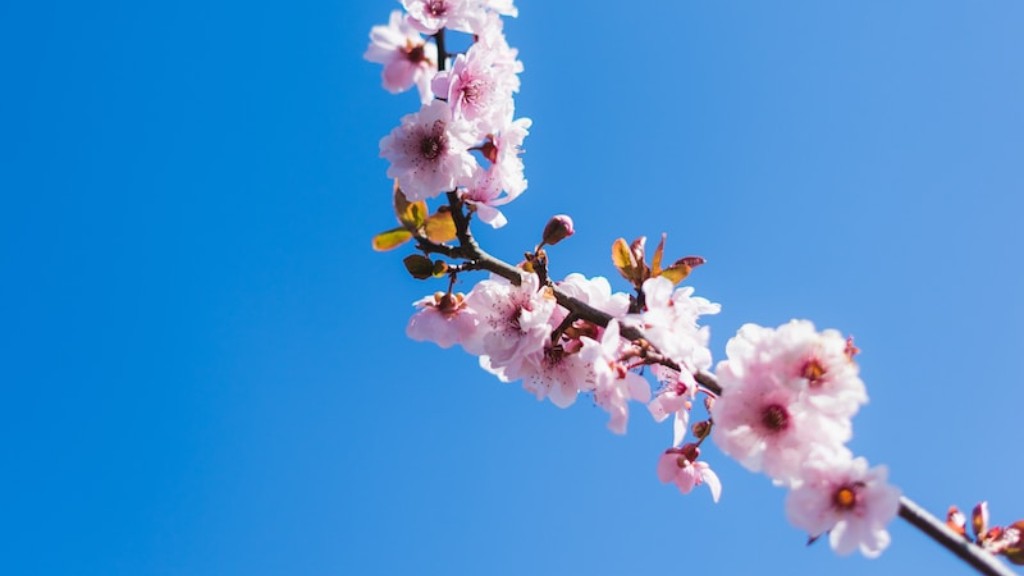Do lemon tree leaves fall off? This is a common question asked by many interested in starting a garden. The answer is yes. Lemon tree leaves will eventually fall off or be shed, just like any other tree leaves, as the plant continues to mature and reach the end of its life cycle. Whether it’s due to natural causes such as age or environmental conditions like extreme temperatures or wind, the leaves will eventually shed and fall off.
Let’s begin by examining why lemon tree leaves fall off. First of all, the leaves are naturally shed as a tree matures. As the tree gets older and grows, the number of leaves it has decreases as a result of having fewer new ones replace the ones that are shed. Also, certain environmental conditions might cause the leaves to become stressed, leading to them losing their grip on the branches and eventually shedding.
Moreover, moisture can be a factor in the shedding of lemon tree leaves. Lemon trees need regular watering in order to stay healthy and grow properly. If the soil remains too dry or the tree otherwise doesn’t receive enough moisture, the leaves may become weak and eventually fall off. The frequency with which the leaves fall off can also vary, depending on the weather, season and tree’s health.
The rate of shedding can also be affected by pests or diseases, as these can damage the leaves, making them more susceptible to falling off. Common pests and diseases include Volutella leaf blight, Citrus root weevil, Citrus leafminer, and Florida red scale. The presence of any of these can lead to premature leaf shedding and a decrease in the overall health of the tree.
Finally, pruning can sometimes be the cause of lemon tree leaves falling off. Pruning operations are necessary to keep trees in check and help them reach their full potential. However, pruning should be done carefully and in moderation to avoid stressing the tree and leading to an excessive amount of leaf shedding.
What Are the Tips To Minimize Leaf Loss?
Fortunately, there are some tips to help minimize the amount of leaf loss from lemon trees. Firstly, it is important to ensure the tree receives enough moisture. The soil should not be allowed to dry out, as this can stress the plant and lead to premature leaf shedding, which is why it’s important to water the tree regularly. Secondly, it is important to inspect trees for any pests or diseases and to treat them if necessary.
Additionally, pruning operations should be conducted cautiously and judiciously, as pruning too often or too aggressively can lead to an excessive amount of leaf shedding. Finally, it is important to properly monitor and maintain the tree, such as by removing dead wood, as this can reduce stress and help protect the tree from pests or diseases.
What Are The Nutritional Benefits Of Lemon Tree Leaves?
In addition to being aesthetically pleasing and lush, lemon tree leaves also provide numerous nutritional benefits. As they contain essential vitamins, minerals and antioxidants, they are beneficial for overall health. Specifically, lemon tree leaves are an excellent source of vitamin C, a powerful antioxidant that helps protect the body against oxidative stress and reduce inflammation. They also contain calcium, iron, magnesium, phosphorus and potassium, all of which are essential for bones, muscles and other organs.
Moreover, lemon leaves have numerous other health benefits. They can help digestion, reduce blood pressure levels, regulate blood sugar levels, and boost the body’s immunity. Furthermore, their anti-inflammatory properties can be useful for joint pain, skin irritations, and infections. For this reason, many consider incorporating lemon tree leaves in their diets as part of a healthy lifestyle.
What Are The Possible Side Effects Of Eating Lemon Tree Leaves?
It is important to note that excessive consumption of lemon tree leaves can lead to side effects. Firstly, lemon tree leaves contain citric acid, which can be harsh on the stomach if eaten in large amounts. Secondly, consuming too many of the leaves can potentially result in digestive issues such as constipation or diarrhea. Furthermore, people with certain allergies should avoid eating lemon tree leaves as it might worsen their condition.
Finally, it is important to be aware of any potential pesticides that may have been applied to the leaves. Pesticides can be toxic if ingested and should be washed away before consuming the leaves. Also, consuming lemon leaves can stain the teeth due to the citric acid content, so it is important to brush them well afterwards. Through being mindful of the potential side effects and taking necessary precautions, one can enjoy the benefits of lemon tree leaves without any adverse effects.
Where Can I Find Lemon Tree Leaves?
These days, it is easier than ever to find lemon tree leaves. They can be found in many grocery stores and are available in several forms, including fresh, dried, and powdered. They can also be purchased online from various retailers and often come in pre-packaged amounts. Furthermore, some nurseries and plant stores may carry lemon tree leaves, if one is looking to buy in bulk or purchase an entire tree.
Aside from purchasing them in a store, lemon tree leaves can be grown in a garden. It is relatively easy to grow and maintain lemon trees as long as proper soil, water, and sunlight are provided. Depending on the season and climate, the leaves of a lemon tree may be available year-round or only intermittently.
What Are The Uses Of Lemon Tree Leaves?
Lemon tree leaves are not only beneficial for nutrition but also are quite versatile in terms of usage. They can be used in many traditional recipes, such as tea, soups, and curries, to give the dish a unique flavor. Additionally, the leaves can also be cooked to create a wide variety of condiments and sauces. Furthermore, they can also be used to make remedies and herbal teas, which possess numerous medicinal properties.
The leaves can also be used as decorations or for aromatherapy. They have a refreshing and calming scent that many associate with happiness and can help reduce stress and anxiety. Moreover, crushed lemon tree leaves can be used in facial masks to help reduce the appearance of wrinkles and blemishes. Lastly, they can be used as a natural and organic fertilizer, which is beneficial for plants and boosts soil fertility.



